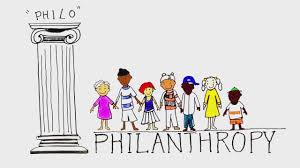
In a world marked by inequalities, social injustices, and pressing global issues, philanthropy is pivotal in positive change. For professionals who are committed to making a difference, effective philanthropy is an art that requires careful planning, strategic thinking, and a genuine passion for giving back. This article will delve into the art of effective philanthropy and explore critical strategies professionals can employ to maximize their impact on the causes they care about.
Understanding the Essence of Philanthropy
Philanthropy is not just about writing checks or making donations; it is a mindset, a way of life, and a commitment to creating a better world. At its core, philanthropy is giving time, talent, and resources to promote the well-being of others and the advancement of society. Whether you are a high-net-worth individual, a corporate executive, or an entrepreneur, your approach to philanthropy can make a profound difference in the lives of those you seek to help.
Setting Clear Philanthropic Goals
The first step in effective philanthropy is setting clear and meaningful goals. What are the issues or causes that matter most to you? Whether it’s education, healthcare, poverty alleviation, environmental conservation, or any other area, defining your philanthropic focus will help you direct your efforts more effectively. Take the time to research and understand the specific challenges within your chosen location, as this will inform your strategy.
Developing a Philanthropic Strategy
Once you have identified your philanthropic focus, it’s time to develop a well-thought-out strategy. Effective philanthropy requires more than spontaneous acts of kindness; it demands careful planning and execution. Here are some critical components of a successful philanthropic strategy:
Research and Due Diligence: Before donating to any organization or cause, conduct thorough research to ensure that your contributions will be used effectively. Look for reputable nonprofits with a track record of transparency and impact.
Partnerships and Collaborations: Consider forming partnerships with other like-minded individuals or organizations. Collaboration can amplify your impact and bring fresh perspectives to your philanthropic efforts.
Long-Term Commitment: Sustainable change often requires long-term commitment. Don’t expect immediate results; be prepared to invest time and resources over the long haul.
Measuring Impact: Implement a system for measuring the impact of your philanthropic activities. Track progress, collect data, and assess the outcomes to make informed decisions about your future giving.
Flexibility: Be open to adjusting your strategy as circumstances evolve. The philanthropic landscape constantly changes, and your approach may need to adapt accordingly.
Strategic Giving
Effective philanthropy goes beyond writing checks; it involves strategic giving. Here are some strategies that can help you make the most of your contributions:
Leverage Your Skills: If you have specialized skills or expertise, consider how you can use them to benefit your chosen cause. For example, if you’re a marketing expert, you could help a nonprofit organization improve its outreach and fundraising efforts.
Impactful Giving: Instead of spreading your donations thinly across multiple causes, focus on a few key initiatives where you can make a significant impact. Concentrated giving allows you to see tangible results.
Giving Circles: Joining or forming a giving circle with other philanthropists can pool resources and collective knowledge, increasing the effectiveness of your contributions.
Donor-Advised Funds: Consider setting up a donor-advised fund, which allows you to make tax-deductible contributions while retaining control over how the funds are distributed to nonprofits.
Transparency and Accountability
Transparency and accountability are essential principles of effective philanthropy. Donors should expect organizations to be transparent about their finances, operations, and impact. Before donating, review an organization’s financial statements, annual reports, and independent evaluations. A reputable nonprofit should have nothing to hide and willingly provide information about how donations are used to further their mission.
Building Meaningful Relationships
Building solid relationships with the organizations and individuals you support is a cornerstone of effective philanthropy. Take the time to connect with nonprofit leaders, beneficiaries, and fellow donors. Engage in conversations, attend events, and participate in site visits to better understand the issues at hand. These relationships can lead to valuable insights and collaboration opportunities.
The Power of Advocacy
In addition to financial contributions, advocacy can be a powerful tool in philanthropy. Use your voice and influence to raise awareness about the causes you care about. Advocate for policy changes, participate in campaigns, and engage with lawmakers to drive positive change at a systemic level. By combining your resources with your advocacy efforts, you can address the root causes of the issues you’re passionate about.
Legacy Planning
Effective philanthropy extends beyond a single lifetime. Consider incorporating philanthropic goals into your estate planning. Establishing a foundation or endowment can ensure that your contributions continue to make a difference for generations to come. Work with legal and financial advisors to structure your giving in a way that aligns with your values and long-term objectives.
The art of effective philanthropy is a dynamic and evolving journey. It requires passion, commitment, and a strategic mindset. By setting clear goals, developing a thoughtful strategy, practicing transparency, building relationships, and advocating for change, professionals in giving back can maximize their impact on the world. Remember that philanthropy is not solely about the resources you provide; it’s about the positive change you bring to the lives of others and the betterment of society as a whole. Embrace the art of effective philanthropy; together, we can create a brighter and more equitable future for all.